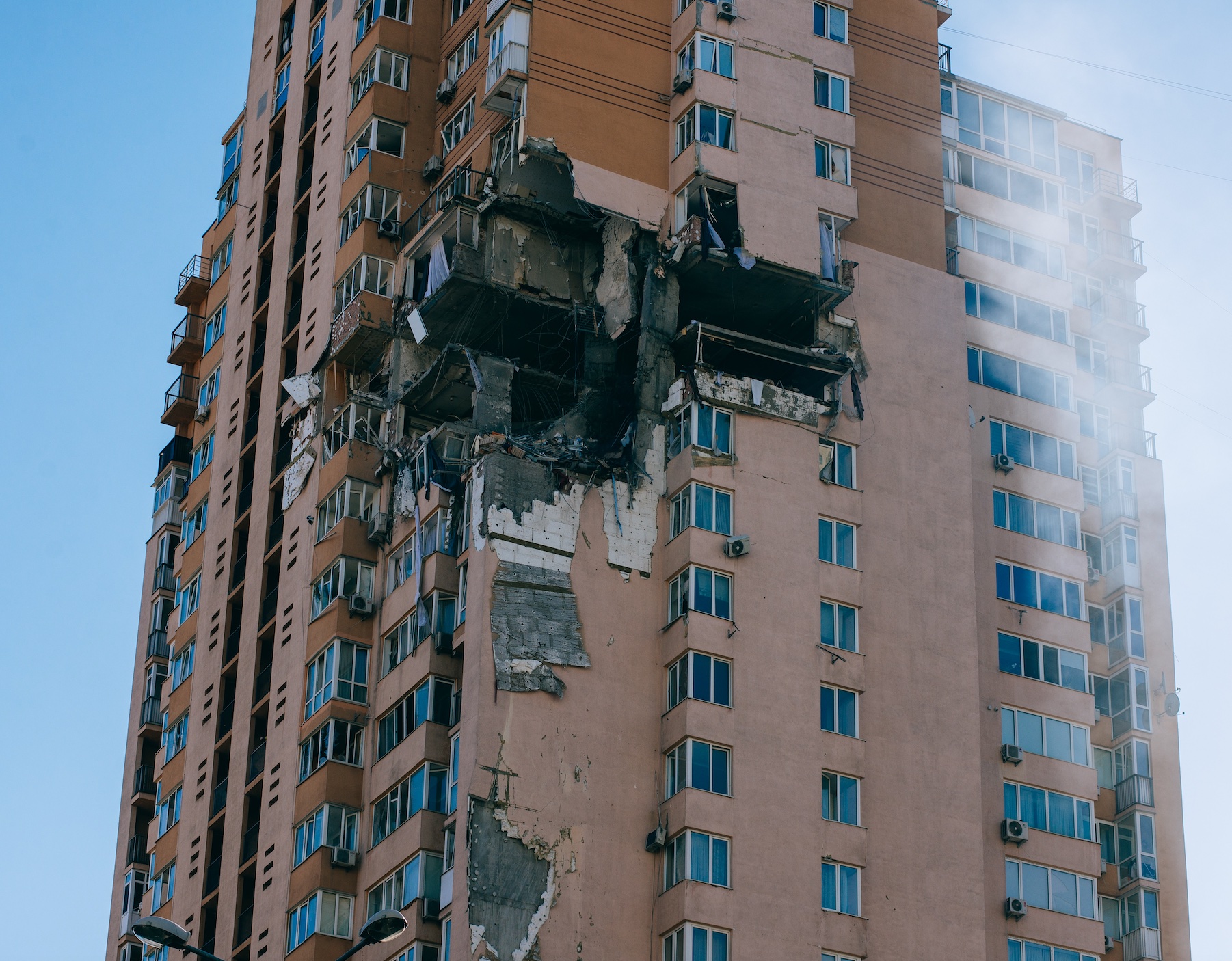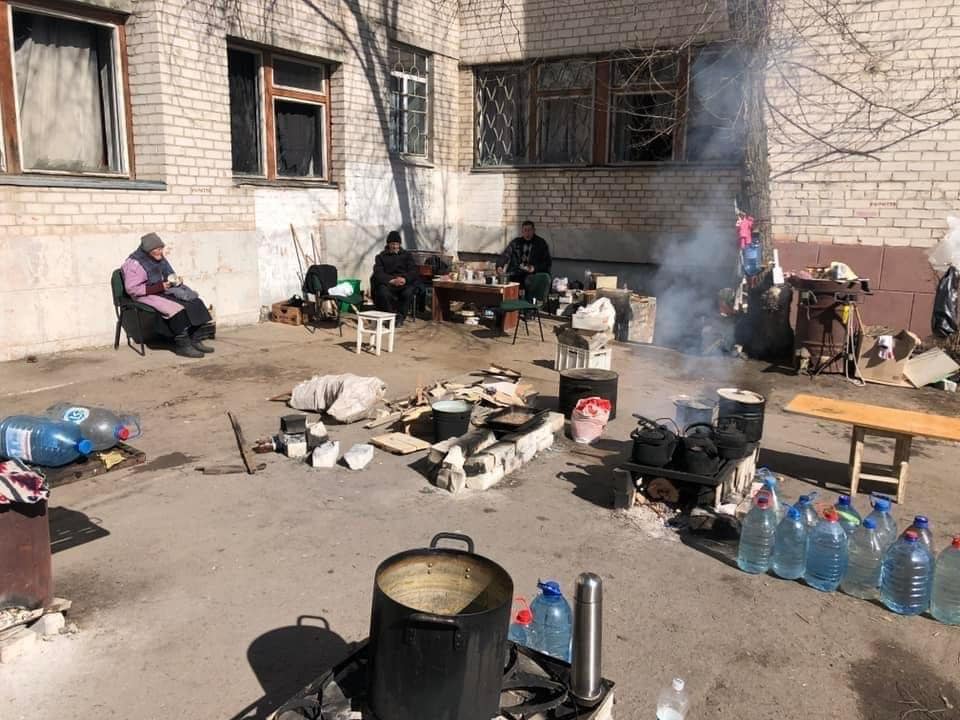War crimes are not a far-distance history anymore—they are occuring in the 21st century. And the time to act responsibly has already come.
“Even wars have rules”—this is how the International Committee of the Red Cross established the framework for war as an armed conflict. The Red Cross has set rigid conventions that would not allow World War II echoes to emerge in contemporary society, including war crimes.
The Hague Conventions of 1907, the four Geneva Conventions, international conventions controlling the use of or prohibiting certain weapons and regulating the rights of the child have entered into legal force under international humanitarian law. They are considered the main agreements to refer to in armed conflicts. But how many of these conventions legally bind both sides in the war made by Russia on Ukraine?
Since February 24, 2022, Russia has been uninterruptedly invading Ukraine for more than 110 days. Even though the blitzkrieg plan failed, Russia did not intend to give up its initial plan to destroy Ukraine as a state and nation. When the Russian army withdrew from the north-western area of the Kyiv region in April, Ukraine’s military faced horrific traces of war crimes left behind by the occupants. And more war crimes will be unraveled when the occupied territories of Ukraine are liberated.
Editor’s note: This piece was originally submitted with photos, some of which showed the brutality of the Russian invasion, all of which were heartbreaking. Unfortunately, due to rigid copyright laws, we were unable to use them despite the fact that they serve as proof of the atrocities.
What Is a War Crime?
The United Nations has described the term “war crimes” in the Article 8 of the Rome Statute of the International Criminal Court (ICC) and included the following assaults:
- Willful killing;
- Torture or human treatment, including biological experiments;
- Extensive destruction and appropriation of property, not justified by military necessity and carried out unlawfully and wantonly;
- Compelling a prisoner of war or other protected person to serve in the forces of a hostile Power;
- Willfully depriving a prisoner of war or other protected person of the rights of fair and regular trial;
- Unlawful deportation or transfer or unlawful confinement, etc.
The statute elaborates on more severe cases of the war crimes:
- Intentionally directing attacks against the civilian population as such or against individual civilians not taking direct part in hostilities;
- Intentionally directing attacks against civilian objects, that is, objects which are not military objectives;
- Attacking or bombarding, by whatever means, towns, villages, dwellings or buildings which are undefended and which are not military objectives;
- The transfer, directly or indirectly, by the Occupying Power of parts of its own civilian population into the territory it occupies, or the deportation or transfer of all or parts of the population of the occupied territory within or outside this territory;
- Intentionally directing attacks against buildings dedicated to religion, education, art, science or charitable purposes, historic monuments, hospitals and places where the sick and wounded are collected, provided they are not military objectives, etc.
In March 2022, Ukraine applied against Russia before the International Court of Justice (ICJ). However, Russia did not appear at the first hearing, held on its invasion and war crimes in Ukraine. As Lawrina legal experts put it, “Russia misinterpreted the Genocide Convention to justify the invasion of Ukraine.”
Inna Ptitsyna from Lawrina legal platform explained that “the Genocide Convention defines genocide as certain, specified actions intended to destroy in whole or in part a national, ethnic, racial, or religious group. There is no evidence that Ukraine committed any such acts.”
Each point describing war crimes in the Rome Statute of the ICC is literally imprinted on every ruined Ukrainian building and life of Ukrainians. Prosecutor General of Ukraine Iryna Venediktva has confirmed 15,000 war crime cases reported since the beginning of the war. Several thousand were carried out in the eastern Donbas region of Ukraine, currently the heaviest-fighting spot. The number of 15,000 is not final—more crimes are to report and investigate.
The Consequences of “Russian World”

The British non-governmental organization Amnesty International has published two reports on war crimes in Ukraine. The first report draws attention to Kyiv suburban areas covering the towns of Bucha, Irpin, Borodyanka, and nearby villages. The main war crimes committed in the outskirts of Kyiv are disproportionate attacks of civilians, tortures, executions, and sexual violence. These malicious acts correspond with the definition of “genocide” specified in the Genocide Convention by the UN General Assembly.
Dead bodies of men and women, tortured and raped, with tied hands and covered heads, were lying on the streets of Bucha, Irpin, Borodyanka, Vorzel, and other liberated villages in the Kyiv region. The state emergency services found many more bodies of murdered civilians in backyards, houses, and playgrounds. In Bucha alone, at least 280 people were buried in mass graves.
That is what Russian troops brought with them when trying to establish the so-called “Russian world” in Ukraine—pain, loss, hatred, cynicism, and physical and mental poverty.
Recently Amnesty International published its second report on war crimes in the second-largest Ukrainian city of Kharkiv. Russian forces are still assaulting it.
According to the report, “they [Russian soldiers] shelled residential neighbourhoods almost daily, killing hundreds of civilians and causing wholesale destruction. Many of the attacks were carried out using widely banned cluster munitions.”
International humanitarian law prohibits using anti-personnel landmines, biological and chemical weapons, explosive remnants, and cluster munitions. Russia uses anti-personnel scatterable landmines and cluster bombs to attack civilians in Kharkiv alone indiscriminately.
Mariupol in the east is the key port city to capture that would make shipments from the annexed Crimea across the Azov sea easier. Mariupol has faced several war crimes at once: maternity hospital shelling, theater airstrike, Azovstal steel plant surrender with 60 Ukrainian defenders evacuated to hospitals in the Russian-controlled region, risk of major cholera outbreak, etc.
War crimes are not a far-distance history anymore—they are occuring in the 21st century. And the time to act responsibly has already come.
How to Call for Justice?
On May 23, 2022, a court in Kyiv sentenced Russian tank commander Vadim Shishimarin, 21, to life in prison for shooting a senior civilian in the Sumy region, north of Ukraine. He admitted his guilt, stating that he had acted on the order. Intentional killing of non-combatants is considered a violation of international laws of war, particularly Article 8 of the Rome Statute.
The case of Shishimarin was the first war crimes trial in Ukraine that ended in life imprisonment. And more trials are expected for the documented 15,000 war crimes by the Prosecutor General’s Office of Ukraine.
The ICC’s legal force is limited to investigating all the crimes since Russia and Ukraine did not sign the ICC’s Rome Statute. Plus, Putin would veto any attempt to investigate his crime of aggression towards Ukraine because Russia is still a permanent member of the UN Security Council, a principal organ that regulates the ICC. Although neither Ukraine nor Russia are state members of the ICJ, Ukraine does recognize the international tribunal’s jurisdiction; hence, it has the right to demand the investigation of war crimes now.
The ongoing war in Ukraine and the atrocities committed against Ukrainians should make world leaders reconsider its sanctions and punitive measures. The legislation laid down after World War II does not work under the current circumstances since Russian officials complicate implementing punitive measures against them. The more perversions of truth the Russian government is inventing, the burning creation of a new tribunal is becoming.
Conclusion
The global community must stop playing around with its fears of being shut down and put in its place. Instead, it should unite to defeat the giant country which diffuses full-scale terrorism and violates international law along with the sense of justice.
Truth be told, there could be any other country in Ukraine’s shoes, no matter how far it is from Russia. Even though the shoes are not comfortable at all, Ukrainians wear them and enter the deep waters when no one would dare.
Give Ukraine more weapons, rigid war rules, and legislative power to punish every single Russian perpetrator.


Join the conversation!